Table of Contents
An independent clause is a group of words that forms a complete sentence on its own. It has both a subject and a verb, expressing a clear and complete thought. Unlike dependent clauses, it does not rely on additional information to make sense. Independent clauses can stand alone or be joined with others using coordinating conjunctions or punctuation like semicolons.
What is an Independent Clause?
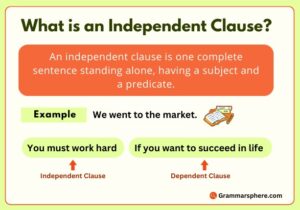
An independent clause is a group of words that contains a subject and a verb and expresses a complete thought. It can stand alone as a sentence.
Example Sentences:
She enjoys reading novels.
The sun rises in the east.
They will visit us tomorrow.
Types of Independent Clauses
1. Simple Independent Clause
A single independent clause that forms a complete sentence.
- She loves music.
- They went to the park.
2. Compound Independent Clause
Two independent clauses joined by a coordinating conjunction (for, and, nor, but, or, yet, so).
- She loves music, and she plays the piano.
- He wanted to go outside, but it started raining.
3. Conditional Independent Clause
Expresses a condition, often using “if” or “unless” with another independent clause.
- You will succeed if you work hard.
- Unless you leave now, you will be late.
4. Declarative Independent Clause
States a fact or opinion using an independent clause.
- The sun sets in the west.
- Reading books improves vocabulary.
5. Interrogative Independent Clause
Asks a direct question using an independent clause.
- Do you like coffee?
- Where is your phone?
Independent Clause and Dependent Clause
| Clause Type | Definition | Example |
|---|---|---|
| Independent Clause | A group of words with a subject and a verb that expresses a complete thought and can stand alone as a sentence. | She enjoys reading. |
| Dependent Clause | A group of words with a subject and a verb that does not express a complete thought and needs an independent clause to make sense. | Because she has free time. |
| Full Sentence | A combination of an independent and a dependent clause forming a complete sentence. | She enjoys reading because she has free time. |
More Examples:
| Independent Clause | Dependent Clause | Full Sentence |
|---|---|---|
| He went to the store. | Although it was raining. | He went to the store although it was raining. |
| They are studying hard. | So that they can pass the exam. | They are studying hard so that they can pass the exam. |
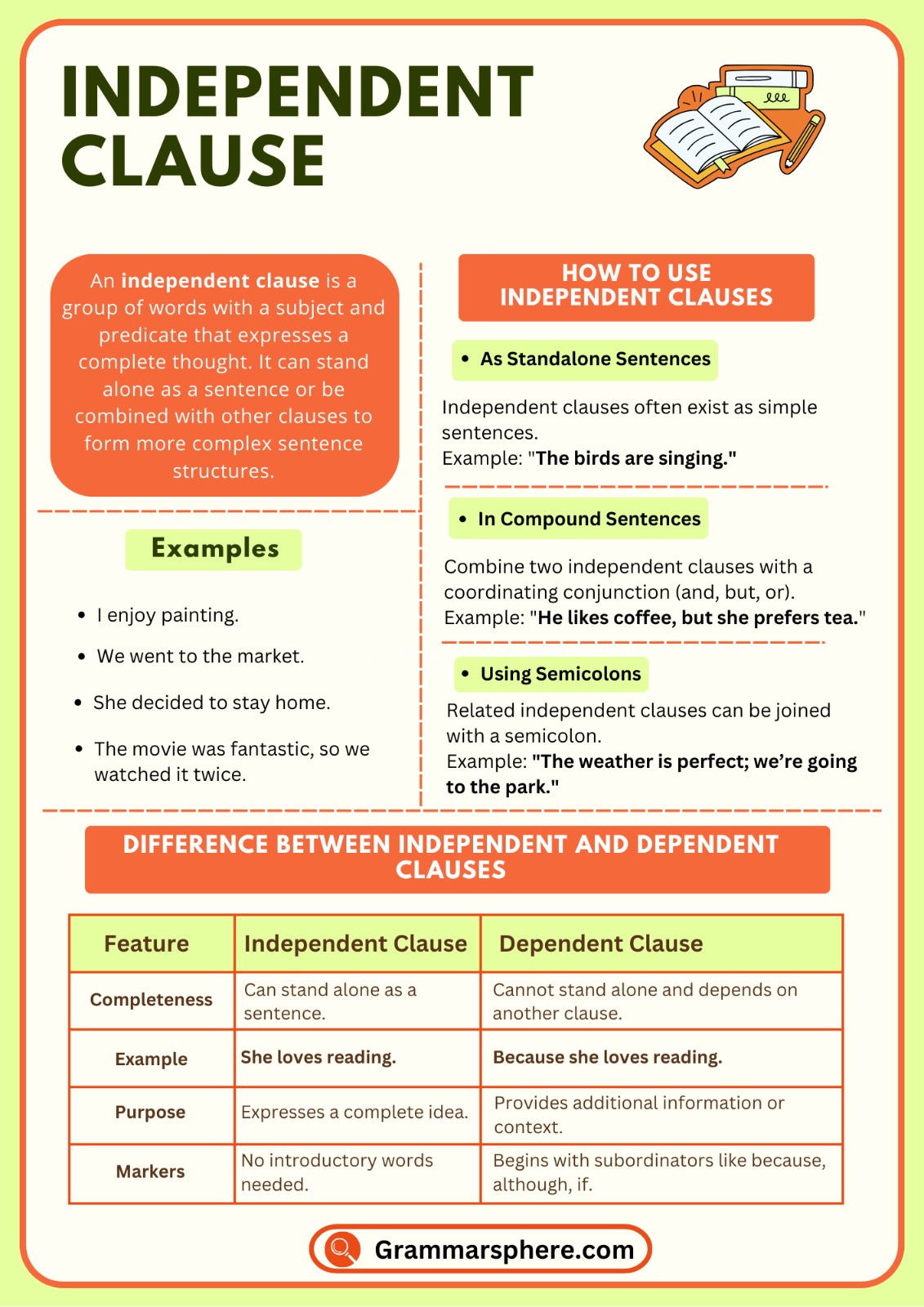
Phrase vs. Dependent Clause
1. A phrase is a group of words that work together but do not have both a subject and a verb. It cannot form a complete thought on its own.
2. A dependent clause (or subordinate clause), on the other hand, contains a subject and a verb but still cannot stand alone because it does not express a complete thought
Structure
- A phrase lacks either a subject, a verb, or both.
- A dependent clause has both a subject and a verb but needs an independent clause to make sense.
Function
- A phrase adds detail or description to a sentence.
- A dependent clause provides additional information but depends on the main clause for meaning.
Phrase Examples
- Walking in the park is relaxing.
(No subject performing the action; walking acts as a noun.)
Dependent Clause:
- When she walks in the park, she feels calm.
(She walks is a subject-verb pair, but the clause is incomplete without the main idea.)
Common Mistakes with Independent Clauses
Here are some common mistakes and how to avoid them:
1. Run-on Sentences
Combining two independent clauses without proper punctuation or a conjunction.
- She loves to read she writes stories too.
- She loves to read, and she writes stories too.
2. Comma Splices
Joining two independent clauses with just a comma.
- I enjoy cooking, I bake cakes every weekend.
- I enjoy cooking, and I bake cakes every weekend.
- I enjoy cooking; I bake cakes every weekend.
3. Using Dependent Words Incorrectly
Starting an independent clause with a subordinating word, making it incomplete.
- Because I was tired.
- Because I was tired, I went to bed early.
4. Missing Subjects or Verbs
Writing a clause that lacks a subject or verb, making it incomplete.
- Went to the store.
- She went to the store.
5. Incorrect Coordination
Using conjunctions improperly to link independent clauses.
✗ He likes pizza but hates burgers, he eats both.
✓ He likes pizza but hates burgers, yet he eats both.
Why Independent Clauses Are Important
Independent clauses are important because they form the foundation of clear and complete sentences. Understanding them helps in writing correctly structured statements, combining ideas effectively, and avoiding sentence fragments.
They allow us to express thoughts fully and create complex sentences by linking with dependent clauses. Mastering independent clauses improves communication, making writing more logical, clear, and grammatically correct.
Examples of Independent Clause
- She enjoys reading books every evening.
- I will call you when I arrive home.
- They finished their project on time.
- He likes playing basketball on weekends.
- We are going to the park later today.
- The dog barked loudly throughout the night.
- My brother studies hard for his exams.
- She is planning to travel abroad next year.
- They met at the café for lunch.
- John loves watching movies with his friends.
FAQS
1. What is an independent clause?
An independent clause is a group of words that expresses a complete thought and can stand alone as a sentence. It includes a subject and a predicate.
Example: She runs every morning.
2. What is the difference between an independent clause and a dependent clause?
An independent clause can stand alone as a complete sentence, while a dependent clause cannot.
Example: Because I was tired.
3. How are independent clauses linked to other clauses?
Independent clauses are linked to other clauses using coordinating conjunctions (such as and, but, or, nor, for, so, yet) or punctuation marks like commas and semicolons. Example, She loves reading, and he enjoys writing.
You May Also Like

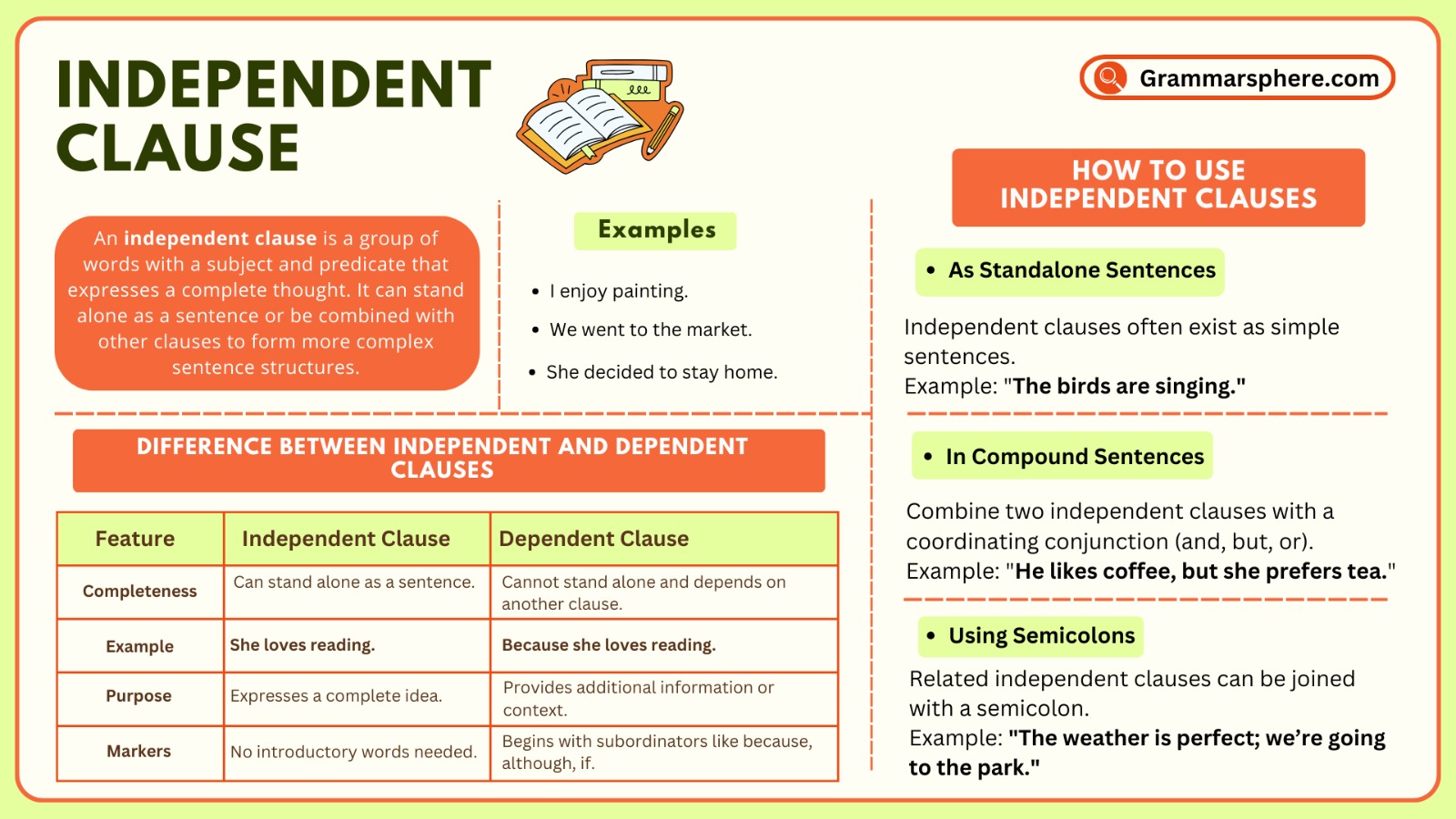
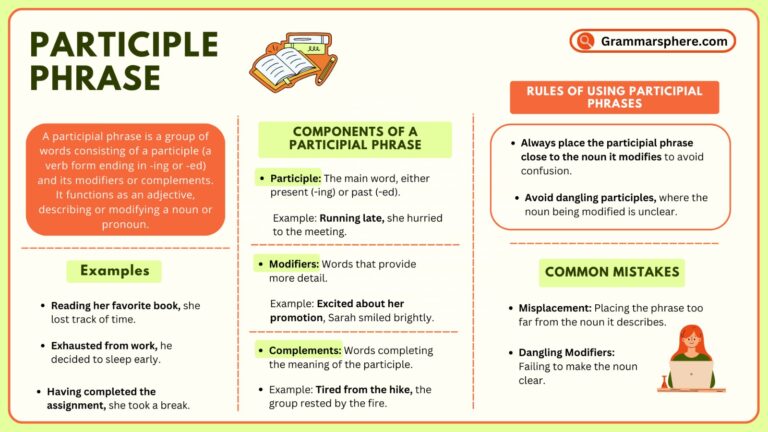
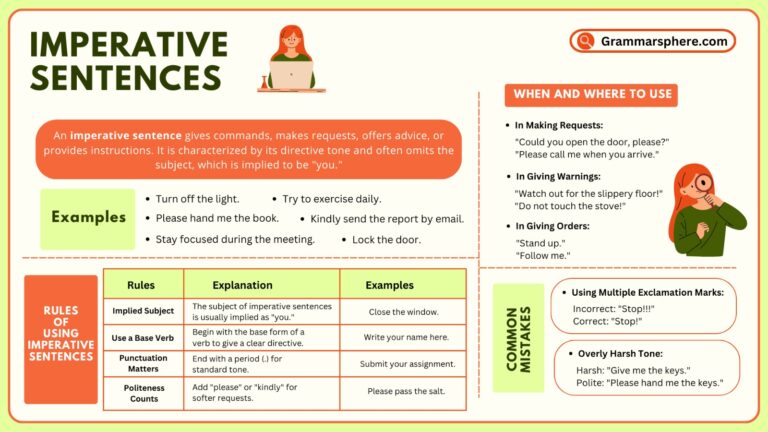
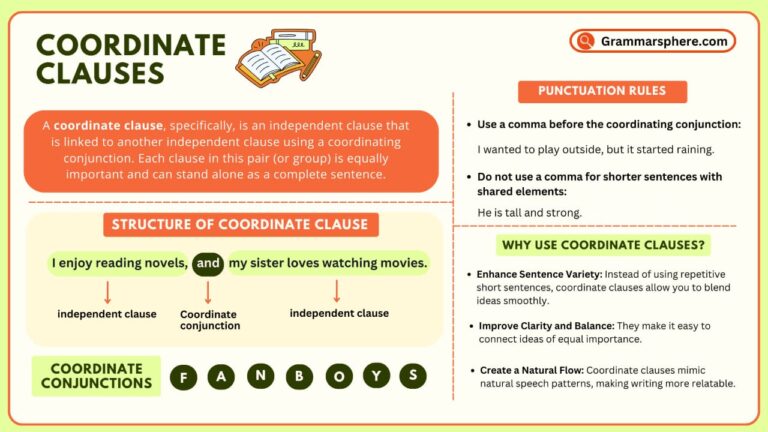
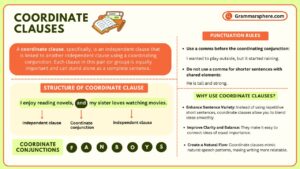
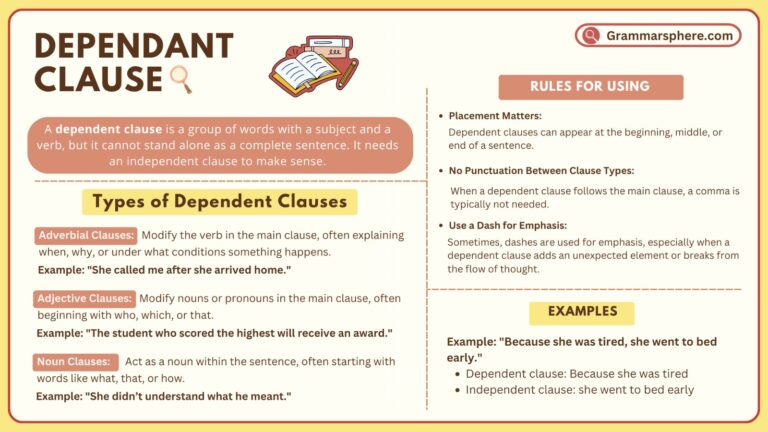
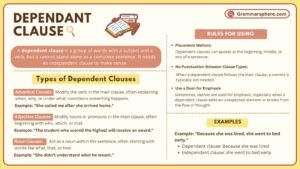
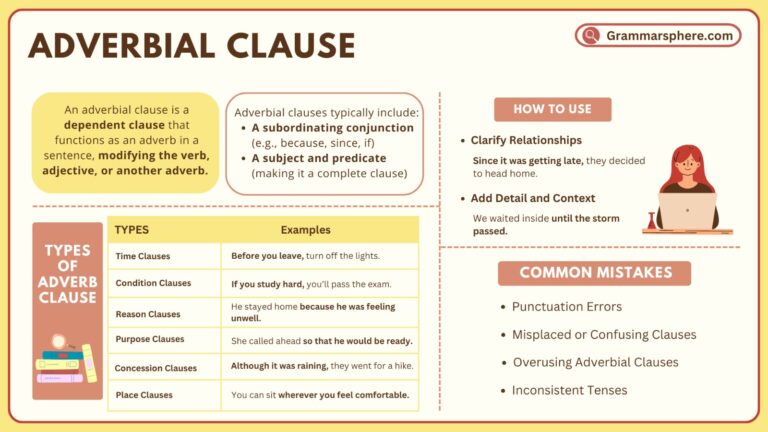
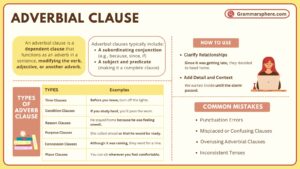
Leave a Comment